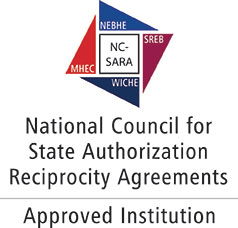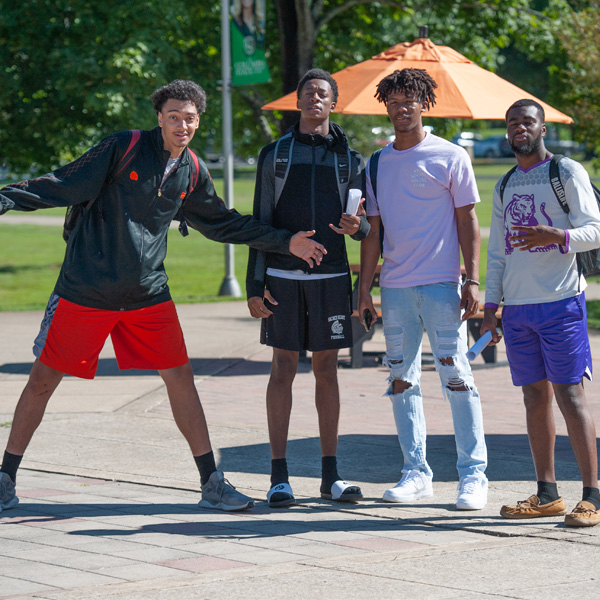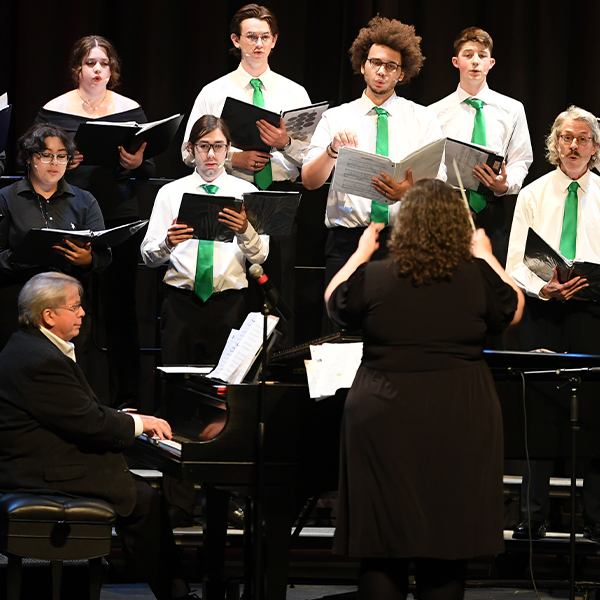Other Distance Education Courses
The demands of work and family can make the more traditional, on-campus model of higher education impractical. For those students whose busy schedules require a more flexible path, Columbia State offers avenues by which you can take courses and get your degree.
In addition to Columbia State's Online Campus and TN eCampus, you will find other types of courses offered through Hybrid Courses, Desktop Video Conference (DVC) which are part web-based and part traditional classroom, I-TV courses, and Web-Enhanced Learning are each different types of courses you will find on the course registration page. Below, you can find information about how those courses work and how you find them on the web!
Hybrid Courses
These courses are coded as 'Hybrid' in the class registration list. Half of the course learning is done online and half is accomplished in a classroom environment - onsite or through desktop video conferencing. The course syllabus will inform you of the dates and times you will need to participate in a classroom environment.
Launch your hybrid course.
Web-Enhanced Classes
Many of Columbia State's classes are Web-Enhanced. This means that your faculty have placed discussion boards, extra reading assignments, support materials, study guides, etc., in a safe place on the web. You will need to sign into the specific place where your course material has been stored in order access it. The location of the material will have been given to you by your faculty member or is listed in the class syllabus.
Web-Enhanced Materials
Two-Way Video and Audio
These are courses which may mean that you are in a classroom watching your teacher live on television and there may be students tuning in from several campuses across the service area. You can see and hear your professor and they can see and hear you as well. You may not be in the same city, but you are operating as if you were in the same room.
DVC - Desktop Video Conferencing
Desktop Video Conferencing courses allow students to participate in a course in real time with the flexibility to take a course off campus. Web conferencing software is used to connect the students with the instructor virtually. This method of instruction provides the capability of two-way audio and video and chat for interaction with the instructor and other students. There may be occasions when an instructor will require students to come to the originating campus location or to the nearest campus to take online proctored midterm and final exam.
DVC
Complaint Resolution Policies

Columbia State Complaint Policies for Certain Distance Education Students
The below policies apply to students who are:- non-Tennessee residents in State Authorization Reciprocity Agreement (“SARA”) states and who are enrolled in a distance education program/course or
- attending an out-of-state learning placement in a SARA state other than Tennessee
The nature of complaints to be addressed through these policies include violations of SARA policies and dishonest or fraudulent activity. These policies do not apply to complaints concerning student grades or student conduct violations. For more information on complaint subject matter see SARA Policy Manual Sections 4.2 and 4.3.
Additional Complaint Policies
- Tennessee Higher Education Commission (“THEC”)
- Students (as described above) must complete the institution complaint process before appealing to THEC.
- Students who are not satisfied with the institution’s resolution of their complaint may appeal the institution decision to THEC using the Request for Complaint Review form. Additional information on the THEC complaint process is available at THEC Complaint Review Process. Students may also contact THEC.RCD@tn.gov with questions.
- The appeal to THEC must be filed within two (2) years of the incident about which the complaint is made.
- Out-of-state student may also contact their home state higher education authority; although student may be referred to THEC. See State Portal Entity Contacts | NC-SARA for a listing of SARA states and contacts.
- Students residing in non-SARA states, currently California only, should consult their respective state of residence for further instructions for filing a complaint.







